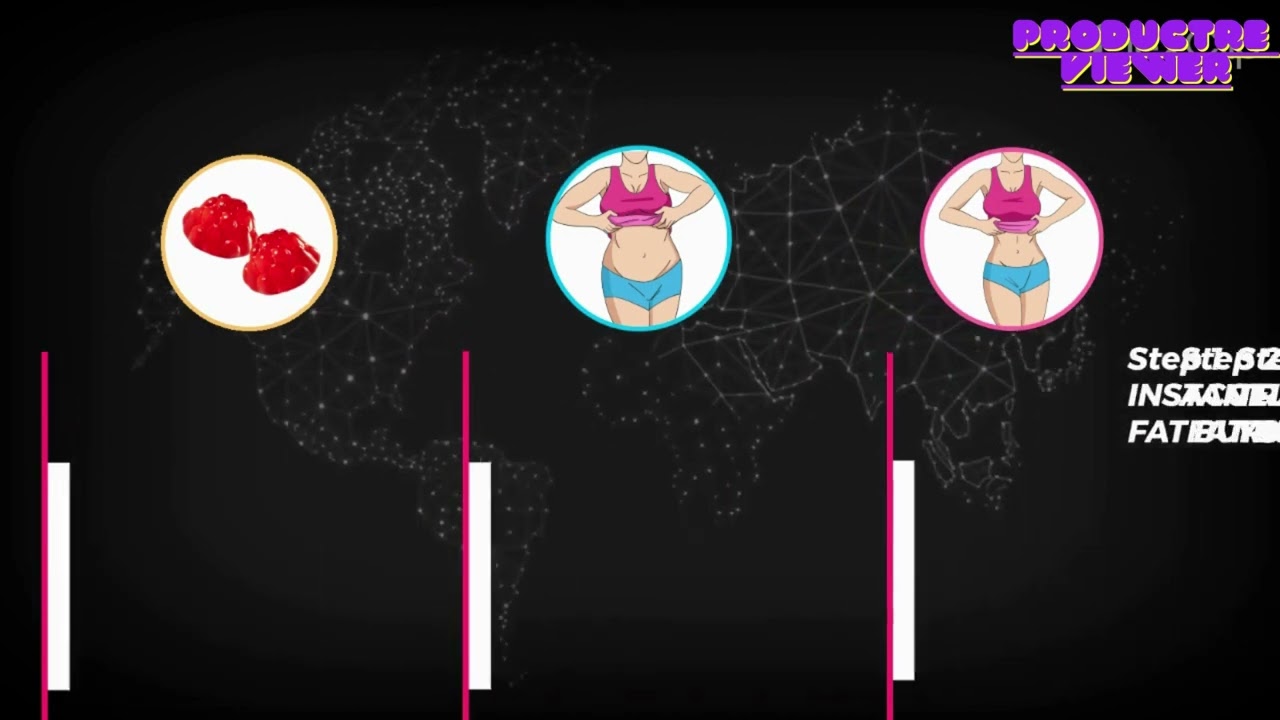Top Weight Loss Pills Review Comprehensive Reviews Of Leading Products
Cold Showers To Boost Metabolism Burn Fatlose Weight Without Exercise
IKARIA JUICE ⛔ Ikaria lean belly juice Ikaria lean belly juice buy Ikaria lean belly jui... ||2025 ✅ Ikaria Juice Official Website + 85% discount: https://rebrand.ly/Ikaria-lean-belly-juice-website-2025 ✅ Ikaria Juice Official Website + 85% discount: https://rebrand.ly/Ikaria-lean-belly-juice-website-2025 Understanding Lean Belly Juice Ingredients: A Deep Dive into Natural Health and Weight Management Welcome to our comprehensive guide on lean belly juice ingredients, where we explore the powerful natural components that make up this popular supplement. If you're curious about what goes into a lean belly juice formula and how these specific lean belly juice ingredients are intended to support your wellness goals, you've come to the right place. We're breaking down each key element to help you understand the potential benefits derived from these carefully selected lean belly juice ingredients. The blend of lean belly juice ingredients is designed to work synergistically, aiming to support various aspects of health, particularly in the realm of metabolism and weight management. Let's delve into the core lean belly juice ingredients and uncover their individual roles. First among the essential lean belly juice ingredients is Fucoxanthin. This natural compound, often found in brown seaweed, is widely studied for its potential role in fat oxidation and thermogenesis. As one of the key lean belly juice ingredients, Fucoxanthin is thought to influence fat metabolism, contributing to the overall efficacy of the formula. Its inclusion in these lean belly juice ingredients suggests a focus on natural metabolic enhancement, making it a pivotal part of the lean belly juice ingredients profile. Next, we look at Panax Ginseng, another vital component in the list of lean belly juice ingredients. Known for centuries for its adaptogenic properties, Panax Ginseng is believed to support energy levels and metabolic functions. Its traditional use in enhancing overall vitality makes it a valuable addition to the lean belly juice ingredients blend, aiming to provide a natural boost. The presence of this potent root among the lean belly juice ingredients emphasizes a holistic approach to wellness and energy support. Bioperine, derived from black pepper extract, is also prominently featured in the lean belly juice ingredients. While not directly a weight loss ingredient itself, Bioperine is crucial for enhancing the bioavailability of other nutrients. This means it helps your body absorb the other beneficial lean belly juice ingredients more effectively, maximizing their impact. Understanding how Bioperine works within the lean belly juice ingredients formula is key to appreciating the synergistic design that aims to optimize nutrient uptake. Resveratrol offers significant antioxidant properties and is a well-regarded compound among the lean belly juice ingredients. Found naturally in grapes and berries, Resveratrol is often associated with cardiovascular health and metabolic support. Including Resveratrol as one of the lean belly juice ingredients underscores the product's aim to provide comprehensive health advantages beyond just weight management, focusing on cellular protection and healthy aging. EGCG, or Epigallocatechin Gallate, is another powerful antioxidant derived from green tea, making it one of the most recognized lean belly juice ingredients for metabolic support. EGCG is frequently studied for its potential to boost metabolism and assist in fat burning processes. Its presence confirms a strategic selection of lean belly juice ingredients focused on natural fat oxidation and energy expenditure. Taraxacum, or Dandelion extract, is a traditional herbal remedy included in the lean belly juice ingredients. Dandelion is known for its mild diuretic properties and its support for liver health and digestion. By aiding natural detoxification pathways, Taraxacum supports the body's systems, contributing to a healthy metabolic environment alongside other lean belly juice ingredients. Citrus Pectin, a soluble fiber found in citrus fruits, adds to the impressive list of lean belly juice ingredients. Pectin is known for promoting satiety, helping to manage appetite, and supporting healthy digestion. As one of the lean belly juice ingredients, it contributes to feelings of fullness, which can be beneficial for managing calorie intake and promoting gut health. Finally, Milk Thistle is one of the foundational lean belly juice ingredients, widely recognized for its liver-protective properties. A healthy liver is crucial for efficient fat metabolism and detoxification processes, making Milk Thistle an indispensable component of the lean belly juice ingredients matrix. Supporting liver function is paramount for overall metabolic health, and its inclusion highlights the holistic focus of the lean belly juice ingredients for systemic well-being. In essence, the selection of lean belly juice ingredients is geared towards compre
Success Stories About The Apple Patch Diet Weight Loss
Welcome to the world of Shark Tank, where entrepreneurs pitch their innovative products to a panel of wealthy investors in the hopes of securing funding to take their business to the next level. One such product that recently caught the attention of viewers is ED Gummies, a weight loss solution that claims to help users shed pounds quickly and easily. But with so many weight loss products on the market making bold claims, it can be challenging to decipher fact from fiction. In this article, we will take a closer look at ED Gummies and explore the truth behind this popular weight loss solution.
Understanding ED Gummies and Their Claims
ED Gummies are marketed as a revolutionary weight loss solution that harnesses the power of natural ingredients to help users lose weight without having to make drastic lifestyle changes. The gummies are said to suppress appetite, boost metabolism, and increase energy levels, making it easier for users to stick to their weight loss goals. But do these claims hold up under scrutiny?
While ED Gummies may contain natural ingredients that have been shown to have some effect on weight loss, such as green tea extract or garcinia cambogia, there is limited scientific evidence to support the efficacy of these ingredients in the form of gummies. Additionally, the Food and Drug Administration does not regulate dietary supplements like ED Gummies, meaning there is no guarantee of their safety or effectiveness.
It’s essential for consumers to approach products like ED Gummies with caution and skepticism, especially when they make lofty claims about rapid weight loss with little to no effort. Before trying any weight loss supplement, it’s crucial to consult with a healthcare professional to ensure it is safe and suitable for your individual needs.
Deciphering Fact from Fiction: The Reality of Weight Loss Solutions
Weight loss is a complex and multifaceted process that involves more than just popping a pill or eating a gummy. Sustainable weight loss requires a combination of healthy eating, regular exercise, and lifestyle changes that support long-term health and well-being. While supplements like ED Gummies may provide a temporary boost in weight loss, they are not a magic bullet solution.
When evaluating weight loss products like ED Gummies, it’s essential to be wary of products that promise quick fixes or dramatic results with little effort. These products often rely on marketing hype rather than scientific evidence to support their claims. A healthy dose of skepticism and critical thinking is necessary when navigating the crowded and often misleading weight loss industry.
Ultimately, the key to successful weight loss is consistency, patience, and a commitment to making sustainable lifestyle changes. While supplements like ED Gummies may have their place in a weight loss journey, they should not be relied upon as the sole solution. By focusing on a balanced diet, regular exercise, and overall wellness, individuals can achieve their weight loss goals in a safe and healthy manner.
Final Thoughts: Navigating the Weight Loss Landscape
As consumers, it’s essential to be informed and empowered when making decisions about weight loss products like ED Gummies. By taking a critical look at the claims and evidence behind these products, individuals can make better-informed choices that support their health and well-being in the long run. Remember, there is no one-size-fits-all solution to weight loss, and what works for one person may not work for another.
Before trying any weight loss supplement, be sure to do your research, consult with a healthcare professional, and approach the process with a healthy dose of skepticism. By taking a balanced and thoughtful approach to weight loss, individuals can achieve their goals in a safe and sustainable manner, without falling victim to misleading marketing claims or false promises.
choice cbd gummies for ed
spectrum cbd gummies for ed
biolife cbd gummies for ed
harmony leaf cbd gummies for ed
amazon cbd gummies for ed
cbd gummies for ed where to buy
ultra cbd gummies for ed
el toro gummies for ed
cbd for ed gummies
ed gummies
natures boost cbd gummies for ed
science cbd gummies 300mg for ed
green otter cbd gummies for ed
ultra cbd gummies for ed
biolife cbd gummies reviews for ed
blue gummies for ed
cbd for ed gummies
regen cbd gummies for ed
do ed gummies work
cbd for ed gummies
Effective Exercise Body Weight Lossspringonyoutube Motivation Loseweight Losefatathome Shorts
F1 Keto ACV Gummies: Have you been looking for a natural and effective way to lose weight? These F1 Keto ACV Gummies will help you quiet down and feel much improved. If you have any desire to get more fit, these desserts can help you. They are a potent treatment that can aid in weight loss. ☘📣Facebook Page👇 https://www.facebook.com/GetF1KetoACVGummies/
Keto Max Science: The Shark Tank Success Story
Resources for the Community: ___________________________________________________________________ https://linktr.ee/theplussidezpodcast Ro - Telehealth for GLP1 weight management https://ro.co/weight-loss/?utm_source=plussidez&utm_medium=partnership&utm_campaign=comms_yt&utm_content=45497&utm_term=55 ______________________________________________________________________ This episode explores the complex issue of obesity treatment and the role of emerging therapies like GLP-1 agonists. It delves into the limitations of traditional weight loss methods, such as diet and exercise, and the physiological factors that contribute to weight gain and difficulty in maintaining weight loss. We discuss the misinformation about the pharmaceutical industry and the importance of evidence-based medicine in obesity treatment. We also touch on Dr Kaplan's appearance on News Nation alongside Jillian Michaels. Dr Kaplan also helps shed light on compound pharmacies and the ongoing attempts of Eli Lilly to stop the practice with the FDA shortage determinations. To Learn More about Dr Kaplan and his practice please access the below links drwell.com pacificheightsplasticsurgery.com/contact ______________________________________________________________________ ⭐️Mounjaro Stanley⭐️ griffintumblerco.Etsy.com Use code PODCAST10 for $ OFF ______________________________________________________________________ Join this channel to get access to perks: / @theplussidez ______________________________________________________________________ #Mounjaro #MounjaroJourney #Ozempic #Semaglutide #tirzepatide #GLP1 #Obesity #zepbound #wegovy
Weightlossdiet Weightlossjourney Weightloss Shorts
Weight loss is a challenging journey for many individuals, with various factors coming into play when trying to shed those extra pounds. From diet to exercise, finding a solution that works best for you can be a daunting task. One potential option that has gained attention in recent years is the use of semaglutide, a medication originally developed to treat type 2 diabetes. Research has shown that semaglutide can also be effective in promoting weight loss when used at higher doses than those typically prescribed for diabetes management.
What is Semaglutide?
Semaglutide is a medication that belongs to a class of drugs known as glucagon-like peptide-1 receptor agonists (GLP-1 RAs). It is commonly used to lower blood sugar levels in individuals with type 2 diabetes by mimicking the effects of the GLP-1 hormone, which stimulates insulin secretion and inhibits glucagon secretion. In addition to its glucose-lowering effects, semaglutide has also been shown to suppress appetite and promote weight loss, making it a promising option for individuals looking to manage their weight.
When used at higher doses specifically for weight loss purposes, semaglutide is administered as a subcutaneous injection once a week. The medication works by affecting the appetite control center in the brain, leading to reduced food intake and increased feelings of fullness. This helps individuals consume fewer calories, leading to gradual but sustainable weight loss over time.
Studies have shown that semaglutide can lead to significant weight loss in individuals who are overweight or obese. In a clinical trial involving over 1,900 participants, those who received semaglutide lost an average of 15-20% of their body weight over the course of one year, compared to just 2-5% in the placebo group. This highlights the potential of semaglutide as an effective tool for weight management when used at the appropriate dose.
Starting Dose of Semaglutide for Weight Loss
When it comes to starting semaglutide for weight loss, it is important to follow the prescribed dosing regimen recommended by your healthcare provider. Typically, individuals begin with a lower dose of semaglutide and gradually increase the dosage over time to minimize side effects and maximize effectiveness. The starting dose of semaglutide for weight loss is usually 0.25 mg administered once a week for the first four weeks.
After the initial four-week period, the dose of semaglutide is increased to 0.5 mg once a week for another four weeks. This gradual dose escalation helps the body adjust to the medication and minimizes the risk of gastrointestinal side effects, which are common with GLP-1 RAs. If tolerated well, the dose of semaglutide can be further increased to 1.0 mg once a week, which is the highest dose approved for weight loss purposes.
It is important to note that the starting dose of semaglutide for weight loss may vary depending on individual factors such as age, weight, and overall health. Your healthcare provider will determine the appropriate dose for you based on these factors and closely monitor your progress to ensure the medication is safe and effective. It is crucial to follow your provider’s guidance and not adjust the dose on your own to avoid potential complications.
Benefits of Semaglutide for Weight Loss
There are several benefits to using semaglutide for weight loss, beyond just the numbers on the scale. In addition to promoting significant weight loss, semaglutide has been shown to improve various markers of health, including blood sugar levels, blood pressure, and cholesterol levels. This can help reduce the risk of developing obesity-related conditions such as type 2 diabetes, heart disease, and stroke.
Furthermore, semaglutide has been found to have a positive impact on quality of life by reducing feelings of hunger and cravings, which can make it easier to stick to a healthy diet and maintain long-term weight loss. The medication is also well-tolerated by most individuals, with the most common side effects being mild and transient gastrointestinal symptoms such as nausea, vomiting, and diarrhea.
Overall, semaglutide offers a comprehensive approach to weight management by targeting both appetite control and metabolic function. When used as part of a holistic weight loss plan that includes diet, exercise, and behavioral changes, semaglutide can help individuals achieve and sustain their weight loss goals in a safe and effective manner.
Considerations Before Starting Semaglutide
Before starting semaglutide for weight loss, it is important to discuss with your healthcare provider to determine if the medication is right for you. Individuals with a history of pancreatitis, thyroid cancer, or certain gastrointestinal disorders may not be suitable candidates for semaglutide due to potential risks associated with the medication. Your provider will assess your medical history and current health status to make an informed decision about the use of semaglutide.
It is also essential to be aware of the potential side effects of semaglutide and how to manage them effectively. Gastrointestinal symptoms are the most common side effects experienced with semaglutide, but they typically improve over time as the body adjusts to the medication. If you experience severe or persistent side effects, it is important to contact your healthcare provider for guidance on how to proceed.
Additionally, it is crucial to commit to lifestyle changes such as healthy eating and regular physical activity while taking semaglutide for weight loss. The medication is most effective when used in conjunction with a balanced diet and exercise plan, as these factors play a significant role in long-term weight management. Your provider can help you develop a personalized weight loss strategy that incorporates semaglutide as part of a comprehensive approach to achieving your goals.
How I Lost 50lbs In 5 Months Weight Loss With Pcos Wegovy Ozempic Semaglutide
Review of Heart and Soil's Beef Organ Supplements. Get More energy Support the channel, visit our store: https://teespring.com/stores/keeflings Overall, we would recommend these supplements based on more energy and better sleep. Quick skip to: Positives - 2:19 Negatives - 3:51 If anyone is interested in checking out or ordering any of these products here are the links to Amazon: Fire Starter - https://amzn.to/3rabwcW Lifeblood - https://amzn.to/3rb1fgX Immunomilk - https://amzn.to/2MipaMw Bone Matrix - https://amzn.to/3rb1loP Heart of the Warrior - https://amzn.to/3d7nPmz New* Heart & Soil Skin, Hair & Nails Supplement - https://amzn.to/3fOXaMX Dr. Saladion's book was also interesting: Dr. Paul Saladino's Book: https://amzn.to/3cr4n43 Disclaimer: Although Heart and Soil or Dr. Saladino are NOT sponsors, Josh & Josh does benefit from purchases through these links from the Amazon Affiliate program, so we appreciate you checking out the product and any purchases made. We receive a small commission on any purchases through the Amazon links above at no extra cost to you. We appreciate the support. Let us know how your experience went with any of these products. Really curious how other's experiences are with some of the other lines such as Bone Matrix. Subscribe to the Something Collective network for more videos from Josh and Josh. Thanks, Everyone!
Tru Bio Keto Gummies: Shark Tank’s Approval Seal
Why Am I Not Losing Weight On Keto Diet? Are you struggling to see results on your keto journey? In this video, we will discuss some common factors that might be affecting your weight loss progress. From understanding your carb intake to managing your calorie consumption, we’ll cover essential tips to help you navigate the keto diet effectively. We’ll also touch on the importance of protein balance, the impact of snacking, and how sugar alcohols can play a role in your weight loss journey. Additionally, we’ll highlight the significance of regular exercise and how stress management can influence your results. Lastly, we’ll emphasize the need for a high-quality diet and the importance of electrolytes and low-carb vegetables in maintaining your health while on keto. Join us as we provide practical advice and strategies to help you stay on track with your weight loss goals. Don't forget to subscribe to our channel for more tips and tricks on living a balanced lifestyle. ⬇️ Subscribe to our channel for more valuable insights. 🔗Subscribe: https://www.youtube.com/@HolisticBalanceAndBliss/?sub_confirmation=1 #KetoDiet #WeightLossJourney #HealthyEating #LowCarb #NutritionTips #FitnessMotivation #KetoLifestyle #CalorieCounting #ProteinBalance #StressManagement #DietTips #ExerciseRoutine #HealthyChoices #KetoSuccess #KetoCommunity #WellnessJourney About Us: Welcome to Holistic Balance and Bliss, your go-to destination for embracing a holistic lifestyle! Our channel is dedicated to exploring the interconnectedness of mind, body, and spirit. We delve into a variety of topics including nutrition, mindfulness practices, natural healing, and sustainable living, all designed to help you cultivate a balanced and blissful life.
Julie Mccawley Ketogenic Diet Conference
Understanding Kidney Pain on the Keto Diet
The ketogenic diet, commonly known as the keto diet, has gained immense popularity over the last few years due to its potential benefits for weight loss, blood sugar control, and overall health improvement. By significantly reducing carbohydrate intake and replacing it with fat, the body enters a metabolic state called ketosis. While many individuals experience remarkable results on this low-carb diet, some may encounter unexpected health issues, including kidney pain. Understanding the relationship between the keto diet and kidney health is crucial for anyone considering this dietary approach. This article will explore the possible causes of kidney pain for individuals on a keto diet and provide practical strategies to prevent and manage these concerns.

The kidneys play a vital role in filtering waste products from the blood, regulating body fluids, and maintaining electrolyte balance. When the body undergoes significant dietary changes, as is the case with the keto diet, the kidneys may face additional challenges. One of the primary reasons individuals experience kidney pain while on keto is dehydration. The keto diet often leads to a diuretic effect in the body, where increased water loss occurs, resulting in a higher risk of dehydration. Since adequate hydration is essential for kidney function, failure to consume sufficient fluids can lead to kidney stones or other complications. Understanding how to maintain hydration while adhering to a keto diet is crucial for preventing kidney-related issues.
<pFurthermore, another factor that may contribute to kidney pain on the keto diet is the increase in protein intake. Keto enthusiasts often turn to protein-rich foods to compensate for the reduced carbohydrate intake. However, excessive protein can create additional strain on the kidneys, particularly for individuals with pre-existing kidney conditions. The kidneys are responsible for filtering out the byproducts of protein metabolism, and an overload can lead to discomfort or pain. Individuals on a keto diet should be aware of their protein consumption and consider balanced approaches to ensure their kidneys remain healthy.
<pMoreover, the composition of the keto diet can also influence kidney health. Many people on keto consume high levels of sodium due to processed keto-friendly foods, which may further stress the kidneys. High sodium intake can lead to increased blood pressure and further kidney complications, especially if not managed properly. Therefore, understanding the nutritional content of foods consumed on keto and making mindful choices can help in reducing the risk of kidney pain while enjoying the benefits of the diet. By addressing these critical factors, individuals can better navigate their keto journey without compromising kidney health.
Dehydration and Its Impact on Kidney Pain
One of the most significant contributors to kidney pain on the keto diet is dehydration. When carbohydrate intake is substantially reduced, the body tends to lose more water, primarily because glycogen, the stored form of carbohydrates in the body, binds with water. As glycogen stores deplete, water is expended, leading to a greater loss than usual. This can result in dehydration, which is detrimental to kidney function. Dehydrated kidneys struggle to filter out waste products effectively, leading to increased pain or discomfort. To counter this, individuals on a keto diet must be vigilant about their fluid intake.
To prevent dehydration, it’s crucial to maintain a consistent intake of water throughout the day. Drinking sufficient fluids becomes even more critical when engaging in physical activity, as exercise further contributes to fluid loss through sweat. A good rule of thumb is to drink at least 3 to 4 liters of water daily, but this can vary based on individual need and activity levels. Observing urine color can also be a useful indicator; a pale yellow color typically signifies proper hydration, while dark urine may suggest dehydration.
In addition to water, incorporating hydrating foods into the diet can also support hydration levels. Many vegetables and fruits, such as cucumbers, lettuce, and tomatoes, have high water content. Adding these foods to a meal supports hydration while aligning with the keto principles. Furthermore, electrolytes such as potassium and magnesium play a critical role in hydration, especially on a ketogenic diet. When fluid loses occur, replenishing electrolytes through diet or supplementation can help manage hydration effectively, thereby reducing the risk of kidney pain.
Understanding Protein Intake on Keto
When embarking on a ketogenic diet, many people misinterpret the role of protein. While protein is an essential macronutrient, excessive intake can strain the kidneys, particularly for those with pre-existing conditions. The keto diet typically requires a higher protein intake to compensate for the drastically reduced carbohydrates. However, the balance is critical. Too much protein can lead to an array of health issues, including kidney pain due to the accumulation of nitrogenous wastes that the kidneys must filter.
Kidney functionalities may not handle high protein levels efficiently, especially if there are underlying health issues. The kidneys process and excrete urea, a byproduct formed during protein metabolism. High protein diets raise urea levels in the blood, leading to increased kidney workload. For healthy individuals, this may not present immediate issues, but for those with compromised kidney function, this could be detrimental. Therefore, it is essential to strike a balance in protein intake while following a keto diet.
To appropriately manage protein intake, individuals should calculate their required levels based on personal health goals, activity level, and overall body weight. Nutritional guidelines often suggest that about 20-25% of total caloric intake should come from protein rather than excessively increasing protein without considering these factors. Consulting with a healthcare provider or a registered dietitian knowledgeable about keto can also guide individuals in determining their optimal levels of protein intake while maintaining kidney health.
The Role of Sodium in Kidney Discomfort
Sodium levels naturally fluctuate when following a ketogenic diet due to the significant changes in food groups and processing. Many keto-friendly processed foods contain high sodium levels for flavor enhancement, which can pose risks for kidney health. Excessive sodium intake can elevate blood pressure, leading to an increased risk of kidney damage. Consequently, individuals following a keto diet should be aware of sodium content and make conscious decisions regarding their food choices.
While sodium is an essential nutrient, its intake must be moderated on a keto diet. Awareness of hidden sodium sources, such as pre-packaged foods, sauces, or condos, is critical in managing overall sodium levels. Instead, incorporating whole, unprocessed foods into meals can help control sodium intake and provide more nutrients without added preservatives. Preparing meals from scratch with fresh ingredients allows greater control over sodium content and promotes kidney health while adhering to the diet.
Additionally, individuals should monitor their blood pressure regularly to assess the impact of their dietary choices. If elevated sodium levels lead to higher blood pressure readings, it may be necessary to reevaluate food choices and sodium consumption. Implementing herbs and spices as flavor alternatives to salt can also help reduce sodium intake while enhancing meal enjoyment. Overall, understanding sodium’s role in the context of a ketogenic diet is vital in preventing kidney discomfort and maintaining optimal health.
Preventive Strategies for Kidney Health on Keto
Taking proactive steps to ensure kidney health while on a ketogenic diet is essential for long-term success. Adopting a holistic approach by prioritizing hydration, balanced macronutrient intake, and nutritious foods can significantly minimize the risk of kidney pain. Regularly monitoring one’s hydration status by maintaining a water intake of at least 3-4 liters daily cultivates a healthy habit that supports both kidney and overall health. Drinking flavored water or herbal teas can also aid in meeting hydration needs while keeping the diet interesting.
Choosing nutrient-dense foods while being mindful of macronutrient ratios is equally vital. Incorporating a variety of vegetables, proteins, and healthy fats allows for a more balanced intake, reducing excess sodium and protein levels. Including potassium-rich foods such as avocados and leafy greens can support kidney function and enhance electrolyte balance. Creating diverse meal plans that prioritize whole and unprocessed ingredients will help establish a sustainable ketogenic lifestyle without compromising kidney health.
Lastly, scheduling regular health check-ups with a healthcare provider is critical. Individuals on a keto diet, especially those with pre-existing conditions, should engage in conversations about their dietary changes. Regular blood and urine tests can assess kidney function and detect any abnormalities early on. This ensures timely intervention, guiding individuals toward necessary dietary modifications to promote kidney health. By taking these preventive strategies seriously, one can enjoy the benefits of the ketogenic diet while minimizing the risk of kidney pain.
Addressing Common Questions About Kidney Pain on Keto
Kidney pain can be a concerning issue for individuals on the ketogenic diet, prompting questions about its causes and solutions. First and foremost, understanding that experiencing discomfort does not necessarily mean one must abandon the diet is vital. Many factors can contribute to kidney pain, and addressing them through preventive measures can result in better kidney health while maintaining dietary objectives.
One common question revolves around how dehydration can cause kidney pain. Dehydration exerts stress on the kidneys, leading to inadequate waste filtration and increasing the risk for kidney stones. To mitigate this issue, individuals on keto must prioritize hydration by consuming sufficient fluids and hydrating foods throughout the day. Regular monitoring of one’s fluid intake can ensure each person remains within a healthy hydration range.

Another frequent inquiry concerns the appropriate protein intake for kidney health while on a keto diet. It is essential to recognize and calculate protein needs based on individual health status, chore endeavors, and dietary goals. Engaging a registered dietitian can offer personalized guidance in navigating protein requirements to ensure the diet remains both effective and kidney-friendly. Lastly, understanding the impact of sodium consumption can assist individuals in making informed choices regarding sodium-rich foods, allowing better management of kidney health. An organized approach to dietary choices can profoundly influence long-term health outcomes on the keto journey.
Pizza For Weight Loss Whole Egg Recipes Cheese Paneer Recipe Indian Diet By Richa
WEIGHT LOSS EXERCISE🔥























